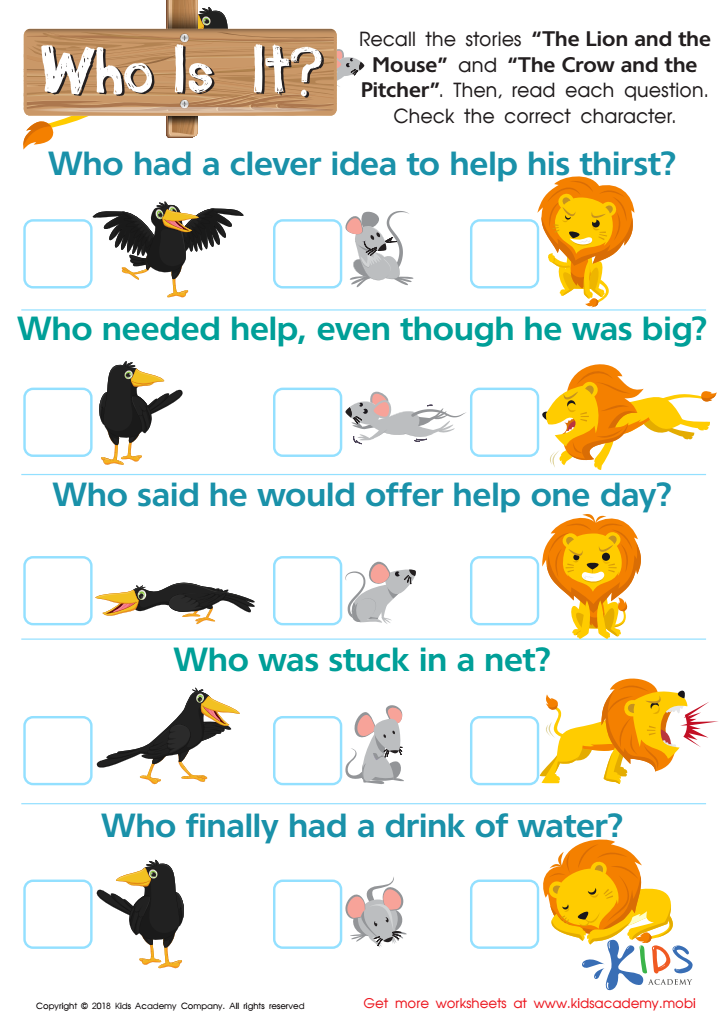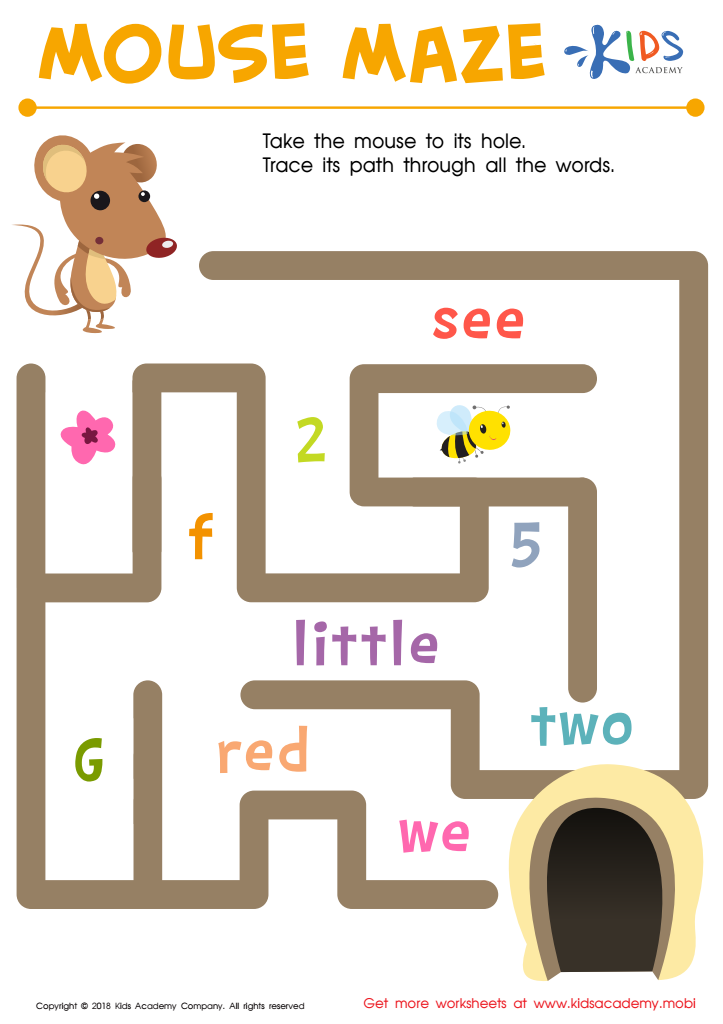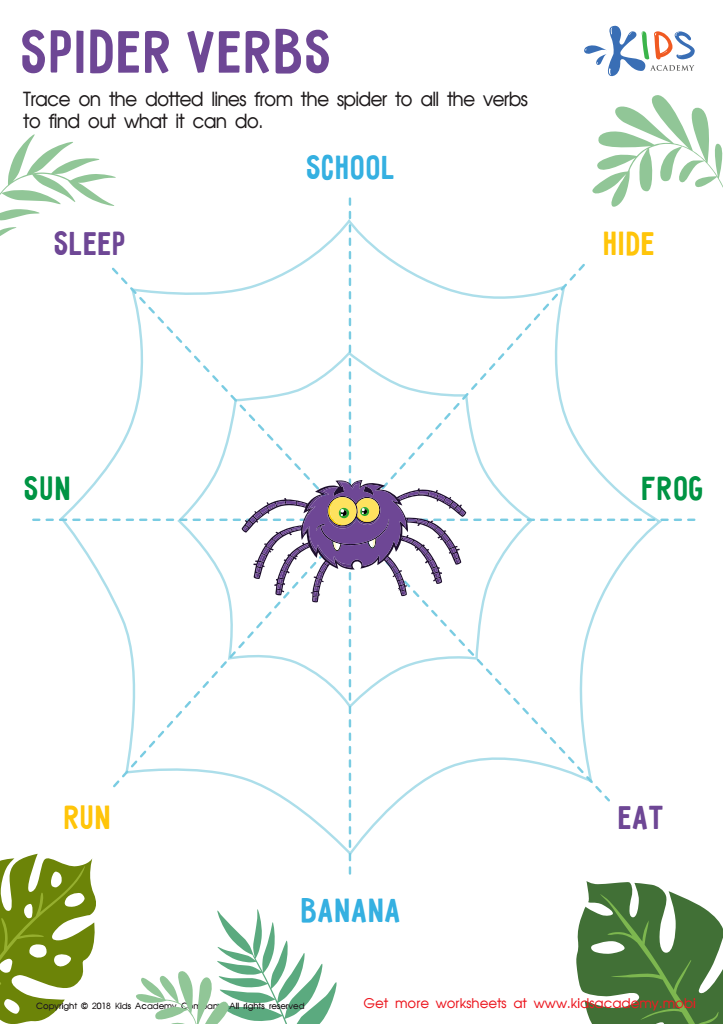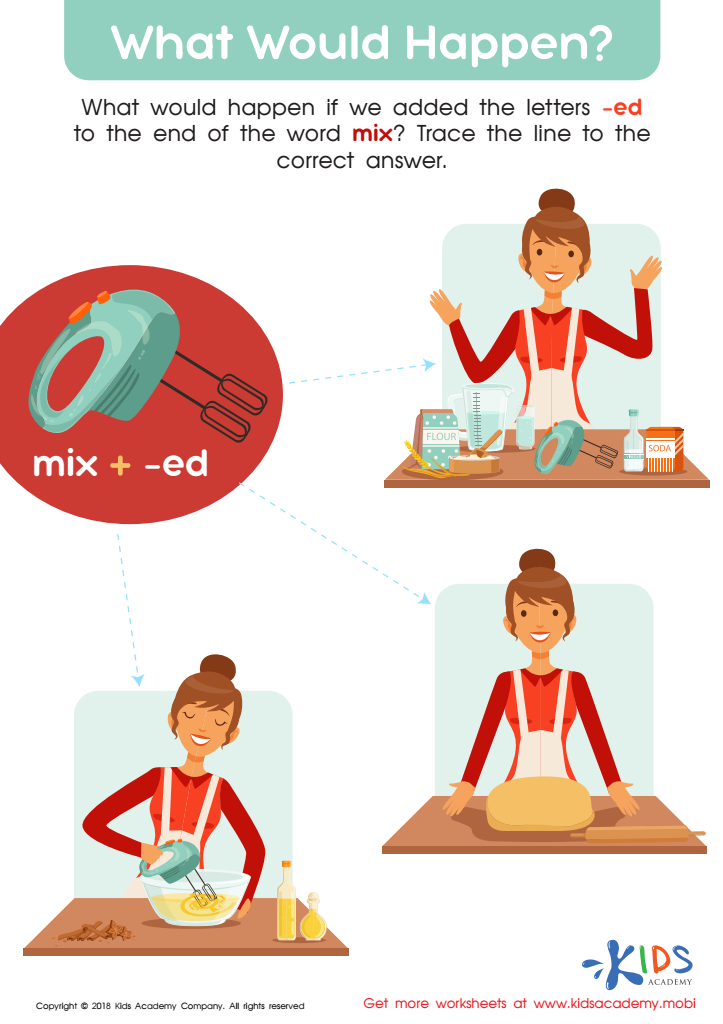Logical thinking Writing Worksheets for Ages 4-8
4 filtered results
-
From - To
Discover our engaging Logical Thinking Writing Worksheets designed specifically for children ages 4 to 8! These worksheets encourage young minds to develop critical reasoning skills while enhancing their writing abilities. With a variety of fun activities, your child will practice organizing thoughts, solving problems, and making connections through interactive tasks. Our thoughtfully crafted exercises focus on stimulating creativity and boosting confidence in writing. Perfect for use at home or in the classroom, these worksheets promote essential cognitive skills that lay the foundation for academic success. Help your child become a confident thinker and writer with our delightful logical thinking resources today!


Who Is It? Worksheet


Find Words Mouse Maze Worksheet


Spider Verbs Worksheet


What Would Happen? Worksheet
Logical thinking writing for children ages 4-8 is crucial for several reasons. First, it enhances cognitive development, encouraging kids to think critically and solve problems systematically. Through tasks like story structuring or drawing connections between ideas, children learn to organize their thoughts, a foundational skill that supports their academic success.
Moreover, engaging in logical writing helps nurture communication skills essential for effective expression and collaboration later in life. Kids learn to articulate their thoughts clearly, providing a robust platform for both oral and written communication.
In this age group, creativity flourishes; logical writing challenges young learners to merge imaginative storytelling with structured narratives, fueling their creativity while simultaneously teaching them discipline in writing.
For parents and teachers, investing time in logical thinking writing promotes emotional intelligence. As children learn to convey their ideas and feelings logically, they develop empathy and the ability to understand diverse perspectives.
Finally, these foundational skills will prepare children for more complex academic challenges in later years. By fostering logical thinking writing now, parents and teachers empower kids with the tools they need for lifelong learning and problem-solving in an increasingly complex world.
 Assign to My Students
Assign to My Students




















